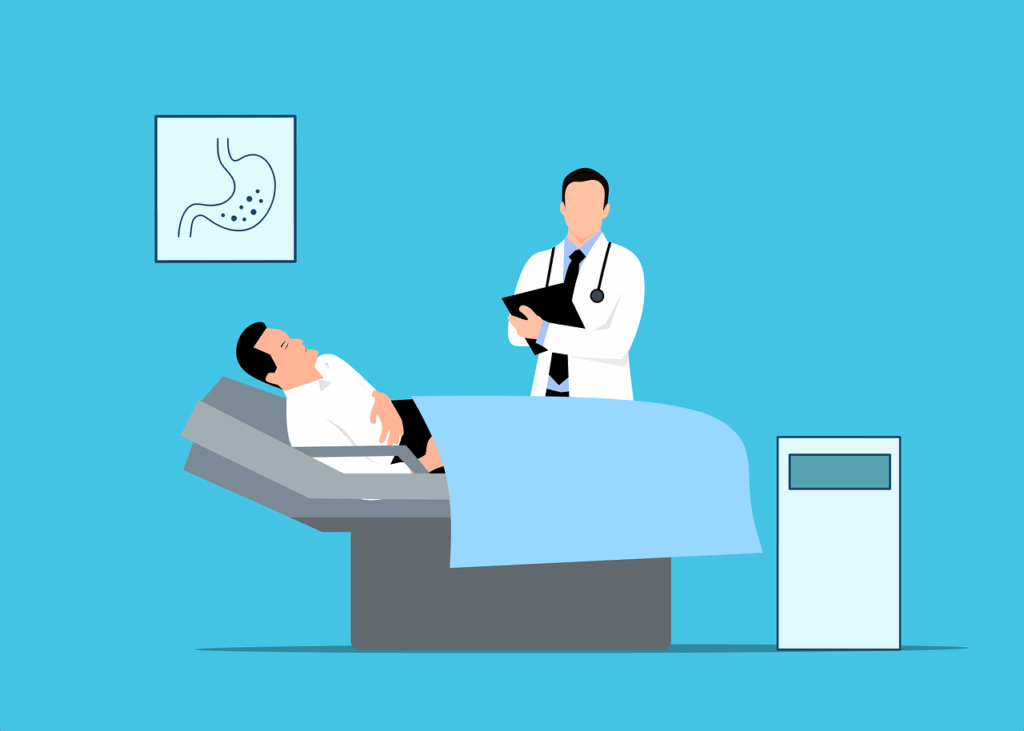Can I drink coffee with gastritis? It’s a fairly common question among people living with the disease. Personally, I never used to be a big coffee drinker. You know the type, those people who swear they can’t function without their morning cup of coffee? That wasn’t me. For years, I went along just fine without it. But, as with many things in life, that changed.
Over time, I acquired the taste. It started slowly, a warm mug on a rainy afternoon. Before I knew it, I had joined the ranks of the coffee-obsessed. There’s just something about it, the smell, the ritual, the way that first sip hugs your insides and wakes up your soul. Coffee became a comfort, a routine, a non-negotiable part of my day.
Then came the diagnosis.
Gastritis. The disease hit me harder than I expected. For those unfamiliar, gastritis is inflammation of the stomach lining. It can cause a host of unpleasant symptoms, burning stomach pain, nausea, bloating, loss of appetite.
Mine had been creeping up on me for a while, but I brushed it off as stress. I also thought the pain that I felt in on the left side of the chest, below the breast, was caused by my heart or my lungs. Eventually, the pain couldn’t be ignored.
After some testing and a long conversation with my doctor, I had to make some serious lifestyle changes. And yes, coffee was at the top of that list.
So, Can You Drink Coffee With Gastritis?
The answer is no, in most cases you cannot drink coffee if you have Gastritis. For people like me who have to fight the disease on a daily basis, that is the most honest response.
Coffee is known to be acidic, and that acidity can irritate the stomach lining, especially when it’s already inflamed. It also stimulates gastric acid secretion, which can further aggravate symptoms of gastritis. And while everyone’s body reacts differently, many people with gastritis find that coffee, especially on an empty stomach, triggers or worsens their pain.
When I asked my doctor about it, he didn’t mince words. “If you want to heal, lay off the coffee for now.”
The Struggle is Real
Giving up coffee was a bit difficult. I hadn’t become a real addict, but I still missed that tantalizing aroma. I missed the ritual almost more than the beverage itself.
But over time, I began to feel better. The gnawing pain that used to greet me after meals became less frequent. My nausea diminished. I had more energy throughout the day, even without caffeine.
What About Low-Acid or Decaf Coffee?
After a few weeks of clean eating and careful symptom management, I began doing some research. I wasn’t ready to say goodbye to coffee forever. I wondered: Are there any safer coffee alternatives for people with gastritis?
Here’s what I learned:
- Low-acid coffee: Some brands specifically market their coffee as low-acid. These can be gentler on the stomach, though they’re not completely risk-free.
- Cold brew: Cold brewing coffee significantly reduces its acidity compared to traditional hot brewing methods.
- Decaf coffee: While it contains less caffeine (which is also an irritant), decaf can still be acidic and potentially problematic for sensitive stomachs.
The Importance of Listening to Your Body
One thing that you will learn if you have gastritis is that no two people are the same. A food that may trigger gastritis pain in one person will be okay for another.
In my case, I have decided to stay completely away from coffee and it’s alternatives. That’s because I have the most severe form of the disease. I can’t risk the potentially debilitating pain.
It’s up to you to experiment. You may find that coffee alternatives do not cause you any issues.
I’ve spoken with others who can’t touch coffee at all, even months into healing. Some people find they can reintroduce it in small amounts. Some switch to herbal teas and never look back. Me?
Coffee can be a gastritis pain trigger
If you’ve been diagnosed with gastritis and are wondering whether you can still enjoy coffee, the honest truth is: probably not in the way you used to. At least, not right away. But that doesn’t mean it’s a permanent goodbye. Healing takes time, and your relationship with coffee might just evolve over time.
Give your body what it needs. Prioritize healing. And if you’re like me, someone who once couldn’t go a day without coffee, know this: you can survive without it. And once you’re feeling better, there’s a chance you’ll be able to enjoy it again, perhaps with even greater appreciation.
